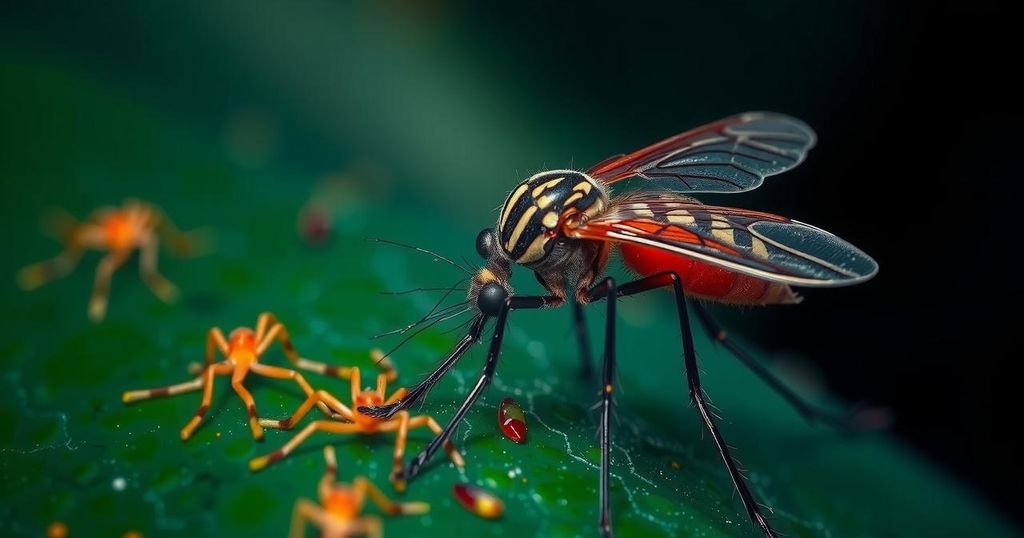UN Warns of Rising Malaria Threat Amid Severe Flooding in South Sudan

The UN warns of a rising malaria threat in South Sudan due to severe flooding affecting 1.4 million people. Recent vaccinations with the R21 malaria vaccine aim to reduce incidences, which are alarmingly high. With substantial child mortality linked to malaria, enhanced prevention strategies, including mosquito nets, are essential in combatting this health crisis.
The United Nations has issued a warning regarding a potential surge in malaria cases in South Sudan, where recent flooding has affected approximately 1.4 million individuals, leading to the displacement of over 379,000 people amid widespread food insecurity. Flooding, particularly severe in the northern regions, poses a profound threat to public health, straining the already fragile health system. The United Nations Office for the Coordination of Humanitarian Affairs (OCHA) has reported flooding affecting 43 counties, including the contested Abyei region. Earlier this year, South Sudan, alongside Cote d’Ivoire, began administering the innovative R21/Matrix-M malaria vaccine to children at risk. This initiative represents a significant advancement in the global fight against malaria. The Ministry of Health received more than 645,000 doses for distribution across the 28 counties most burdened by malaria, aiming to scale up vaccination efforts nationwide. South Sudan faces one of the highest incidences of malaria worldwide, with the World Health Organization (WHO) noting an alarming rate of 7,680 cases and 18 fatalities each day. The disease remains the leading cause of death among children, with 2.8 million cases and over 6,680 deaths recorded in 2022. Medical professionals express optimism that the introduction of the R21 vaccine may significantly alleviate these dire statistics, as the government invests heavily in malaria treatment and diagnostic kits. According to the Malaria Consortium, 85 percent of the at-risk population utilized recommended preventive measures, such as mosquito nets, in 2023. Experts continue to advocate for the use of treated mosquito nets as a vital defense against this deadly disease.
The situation in South Sudan is exacerbated by severe flooding, resulting in a humanitarian crisis that contributes to both environmental and health challenges. The rising incidences of malaria can be attributed to these adverse climatic effects, which create breeding conditions for mosquitoes. The introduction of a new malaria vaccine aims to combat this significant health threat, especially among vulnerable populations such as children. Effective malaria prevention methods, like insecticide-treated mosquito nets, are recommended to further mitigate risks in this affected region.
In summary, the United Nations has raised alarms regarding the increase of malaria in flood-stricken South Sudan, stressing the urgent need for effective interventions. The administration of the R21 malaria vaccine marks a pivotal step in combatting this pervasive disease, which claims numerous lives in the country. Preventative measures, particularly the use of mosquito nets, remain crucial to protecting vulnerable populations as South Sudan grapples with both health and environmental challenges.
Original Source: newscentral.africa






